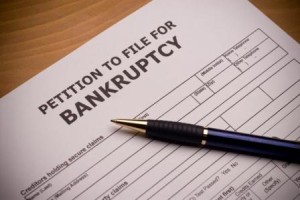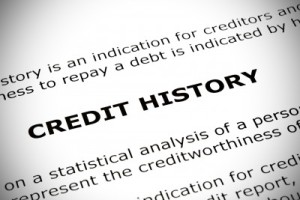Buying a home after bankruptcy presents a number of challenges. Declaring bankruptcy severely damages your credit and significantly lowers your credit score. This effectively destroys your ability to purchase a home or any other large item  for some time. In today’s economic climate, getting a home loan can be difficult, but the damage bankruptcy does to a person’s credit is temporary and there are a number of things you can do to improve your chances of finding a lender and buying the home of your dreams after bankruptcy.
for some time. In today’s economic climate, getting a home loan can be difficult, but the damage bankruptcy does to a person’s credit is temporary and there are a number of things you can do to improve your chances of finding a lender and buying the home of your dreams after bankruptcy.
The best thing you can do is give yourself time. Most lenders will not even consider issuing you a loan until at least two years after your bankruptcy has been discharged. On the bright side, two years isn’t that long of a wait and there are many things you can (and should) do during that time to improve your credit and increase your attractiveness to lenders. The very first thing you should do is get a copy of your credit score. This will help you more fully understand where you are financially and allow you to spot any mistakes that might be dragging down your credit score unnecessarily. If you do spot any mistakes, dispute them with the credit agency that issued your score.
After you’ve gotten a handle on where you stand, you can begin working to improve your credit score; with proper planning and discipline your credit rating will improve over time. Keep in mind that the overall goal here is to prove to lenders that you can be trusted to pay back money that you have borrowed. Improving your credit score is a way to accomplish this. While it isn’t necessarily advisable to take out additional credit, obtaining a secured credit card or making regular payments on an installment loan are two methods people use to improve their credit score.
A secured credit card is basically a card whose credit limit is dependent on the amount of money you have deposited with the issuing bank and your previous credit history. With this type of card, a savings account is used as collateral on the credit available on the card. As you’re rebuilding your credit, you should only use a fraction of the credit available to you. In other words, don’t max out all of your cards. Also, make sure your payments are on time and over the minimum amount required by your bank. Don’t bounce any checks either as these can also negatively impact your credit score. Less obviously, try to stay at the same job for at least two years and maintain your current income level. Lenders like to see stability when they’re evaluating who they’ll give a loan to. Finally, make a commitment to growing your savings account. Putting money in the bank will lower your debt-to-income ratio and allow for a larger down payment. This is important since the larger your down payment is, the more likely lenders will be to talk to you. A larger down payment can also lower your interest rate.
Once your credit rating is in better shape and you’re ready to get serious about looking for a home, consider getting a loan from the Federal Housing Administration (FHA). FHA loans are often more accommodating for those who have a bankruptcy in their history than loans issued by standard lending institutions. Additionally, be ready to pay a higher interest rate. A past bankruptcy often means a higher interest rate; but a larger down payment can lower it for you.
Finally, make sure to purchase only what you can afford. Mortgage calculators can help you figure out what sort of down payment you can expect. Best of luck in your home search; if you’d like to check out communities you’re interested in - have a look at our MoveMap, it makes finding the neighborhood that’s right for you easy and fun!


